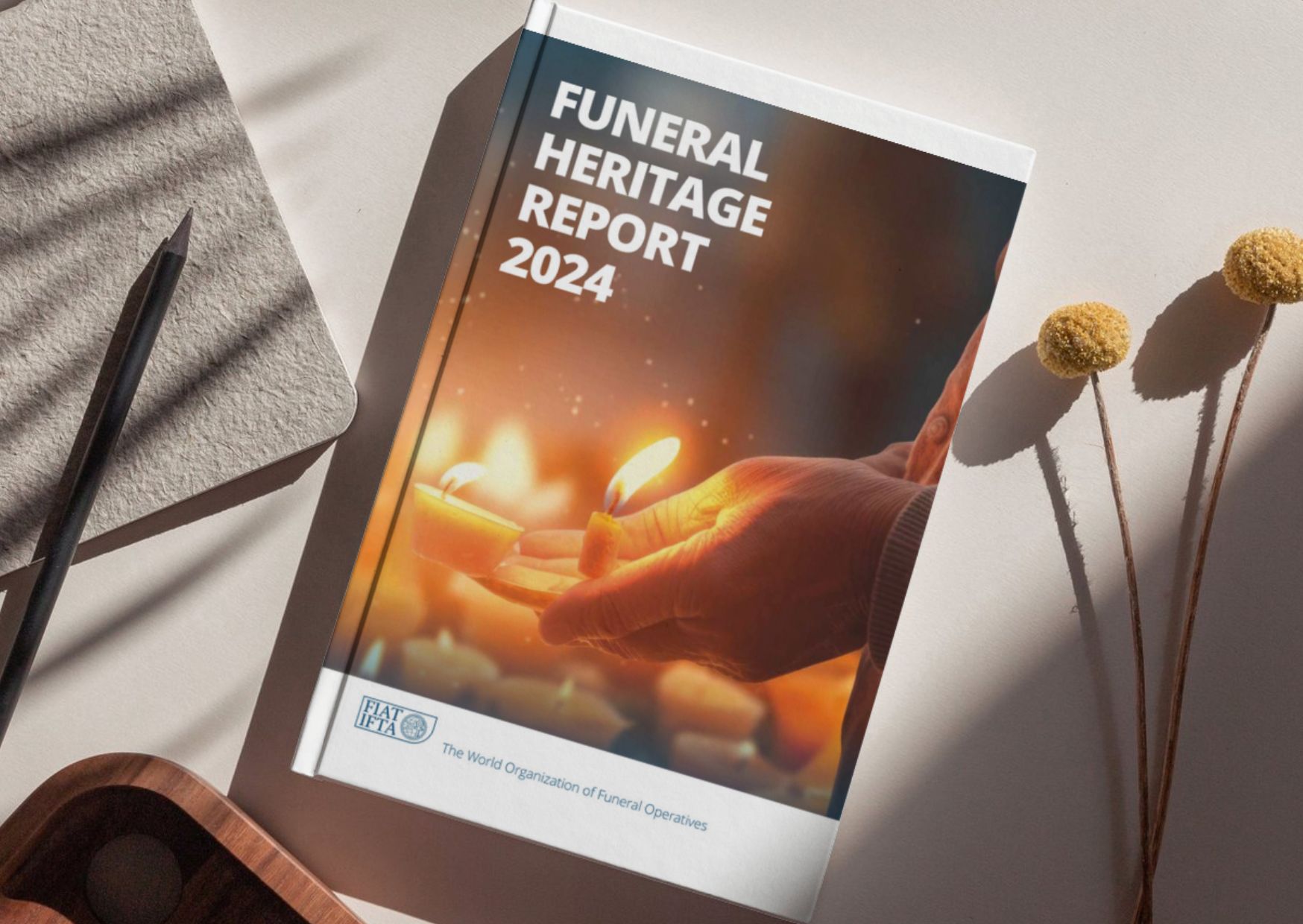Become a member
FIAT-IFTA is the only internationally governed Funeral Federation with National, Active and Associate Members in more than 80 Countries.
With this publication FIAT-IFTA aims to preserve and safeguard the Global Funeral Heritage in a joint effort with other organizations, as well as creating international awareness. Explore a wide range of insightfull articles about funeral customs around the globe.
In this issue we present:
Read the Funeral Heritage Report 2024 online
Printed copies will also be distributed to attendees at the FIAT-IFTA 2024 Convention in Krakow, Poland.

The editorial team and the FIAT-IFTA Board are extremely grateful to all contributors to the FIAT-IFTA Funeral Heritage Report 2024: FIAT-IFTA National Members, especially the assistance of CFA – China Funeral Association and Sveriges Begravningsbyraaers Forbund from Sweden as well as FIAT-IFTA Active Members especially GALLARDO CARGO S.A. de C.V. from Mexico, FUNERAL SUPPORT SERVICES CO. LTD. from Japan and many independent authors, specialists, and enthusiasts of intangible funerary heritage.
What do we mean by Intangible Cultural Heritage?
Intangible Cultural Heritage is a term used to broadly refer to the cultural practices, expressions, and knowledge that shape a group’s identity and sense of belonging. This includes language, music, dance, craftsmanship, rituals, and artistic expression that are passed on from generation to generation. Intangible Cultural Heritage is an important part of humanity’s global cultural heritage, and its preservation is essential in order to maintain cultural diversity.
In 2003, UNESCO adopted the Convention for the Safeguarding of Intangible Cultural Heritage, which aims to protect and promote the diversity of Intangible Cultural Heritage in all its forms. The Convention is based on the idea that intangible heritage is an essential part of the world’s cultural heritage and should therefore be preserved and protected. It outlines the responsibilities of governments to protect Intangible Cultural Heritage and encourages international cooperation in its promotion. The Convention also sets up a framework for the establishment of a list of Intangible Cultural Heritage items that should be protected. This list, known as the Representative List of the Intangible Cultural Heritage of Humanity, includes items such as the Japanese tea ceremony, the Indian kathak dance, and the Brazilian martial art of capoeira. The list is regularly updated, and currently includes around 400 items from around the world.
There are five broad ‘domains’ in which intangible cultural heritage is manifested:
Since its establishment in 2008, the FIAT-IFTA Funeral Heritage Steering Committee objective is to ensure that there is recognition of the importance of funeral heritage as part of intangible cultural heritage. We believe that funeral rites and social practices around death, dying and bereavement are worth keeping and worth remembering. The protection of funeral heritage forms a key part of FIAT-IFTA’s ongoing mission to provide advocacy, education, information, products, programmes and services to its worldwide membership.
FIAT-IFTA is the only internationally governed funeral Federation with National, Active And Associate Members in more than 80 countries.
Subscribe to our newsletter and receive the latest funeral news and Thanos Magazine for free.
Not a member yet? Become a member